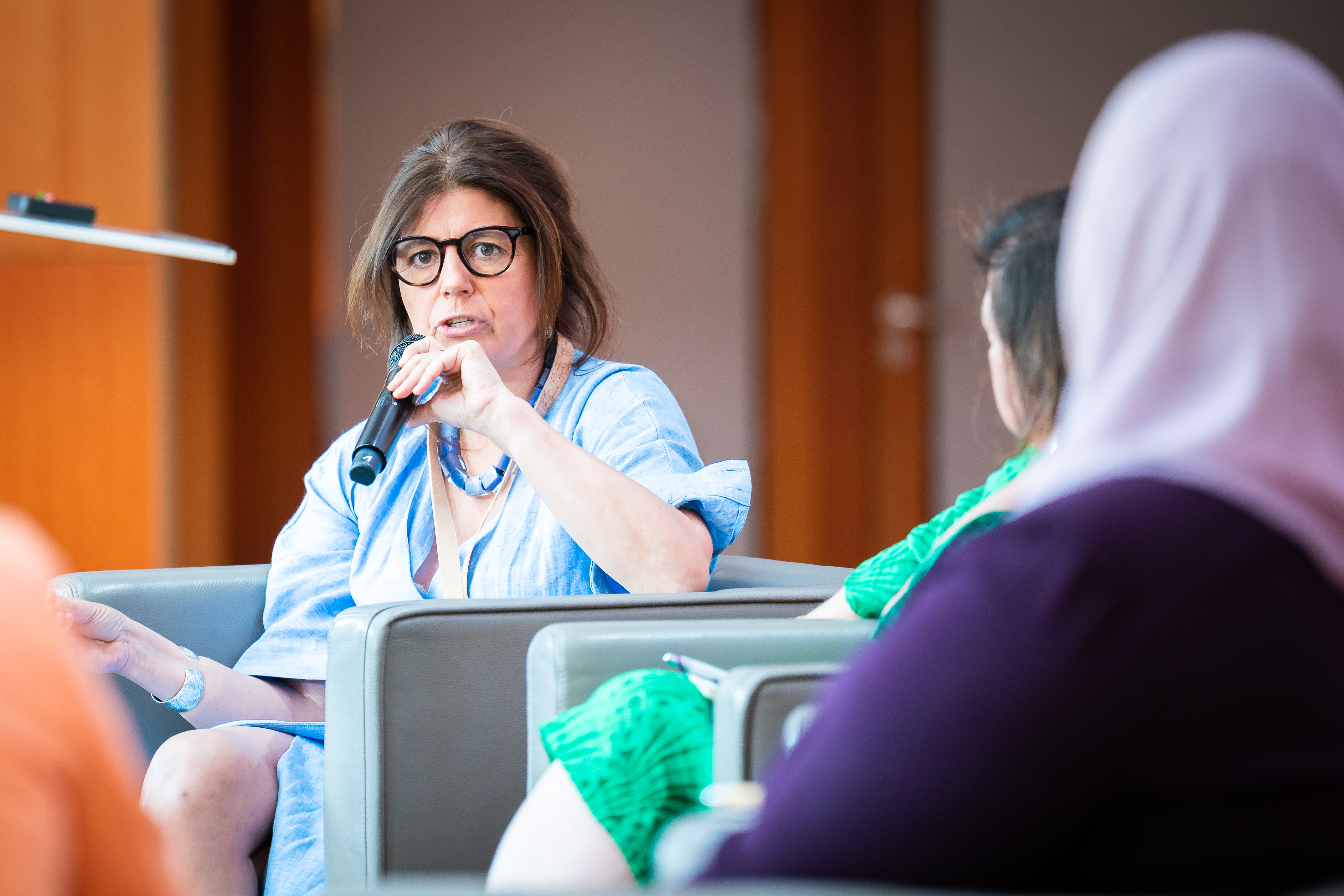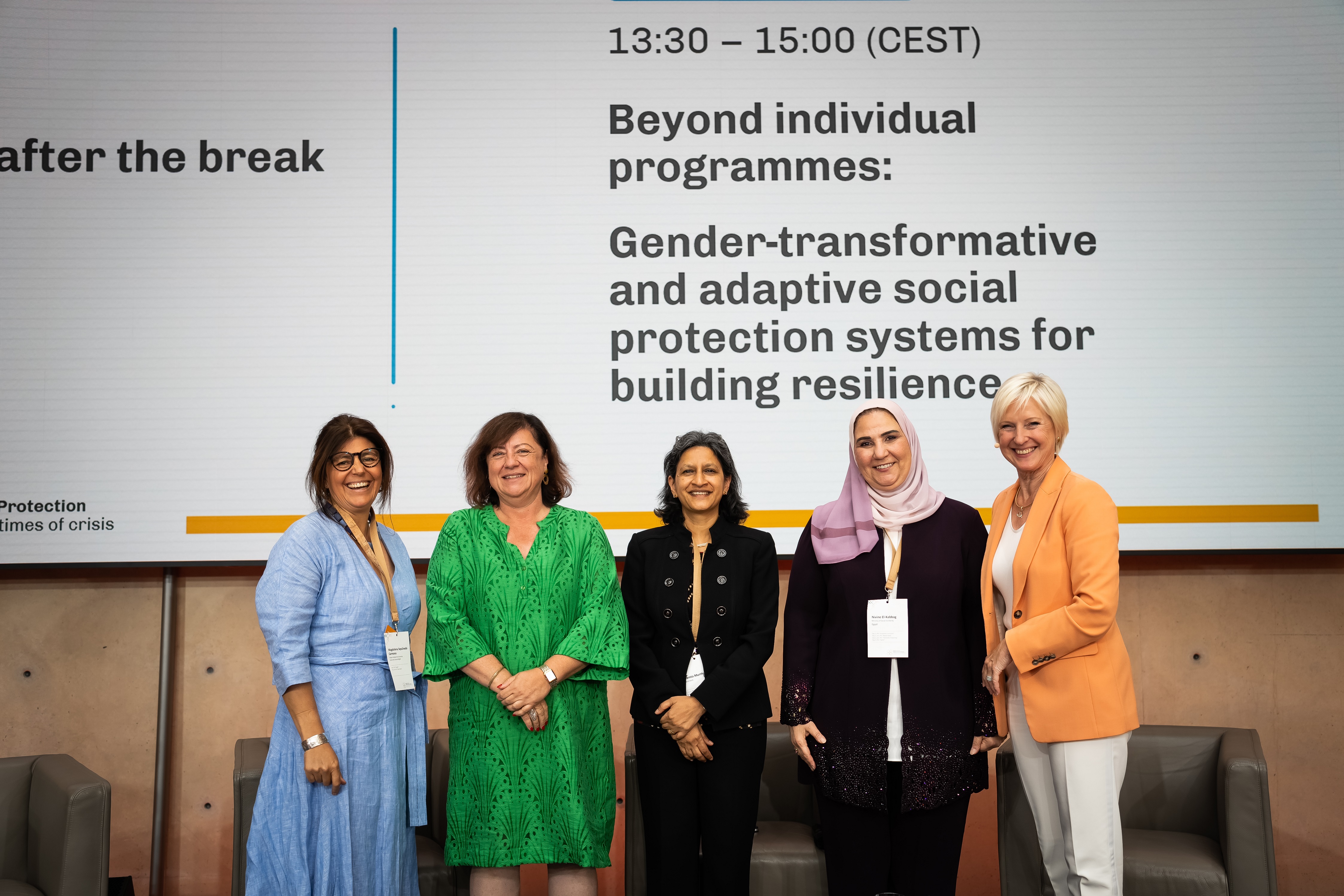
GI-ESCR actively engaged in promoting social protection for all
Our Executive Director, actively engaged in the Global Forum on Adaptive Social Protection. “Protecting lives and livelihoods in times of crisis” hosted by the German Federal Ministry for Economic Cooperation and Development (BMZ) and the World Bank Group (WBG) as well as the Deutsche Gesellschaft für Internationale Zusammenarbeit (GIZ) in Berlin from 13 to 15 June 2023.
The Global Forum provided an opportunity for policymakers, practitioners and social protection experts to jointly examine and discuss the importance of social protection systems to address the interlinked crises that the world is facing today.
Magdalena Sepulveda spoke on the opening session of the forum, “Towards social protection for all in the face of multiple global crises” together with Bärbel Kofler Parliamentary State Secretary, Ministry for Economic Cooperation and Development (BMZ); Mamta Murthi, Vice President for Human Development and Acting Managing Director, World Bank; Nivine El Kabbag , Minister of Social Solidarity, Egypt and Stefan Dercon Professor of Economic Policy at the Blavatnik School of Government and the Economics Department.
She also participated the second day at the panel on Domestic Financing of social protection, organized by the International Labour Organization. This session explored the strategies for domestic resource mobilisation, such as reallocating public expenditures, (e.g. reducing fossil fuel subsidies), strategies to increase tax revenues by broadening the tax base and enhancing compliance, tackling illicit financial flows, extending social insurance coverage and contributory revenues, and additional borrowing and/or debt restructuring.
Social protection is a fundamental economic right included in human rights instruments since the Universal Declaration of Human Rights (1948). For social protection systems to effectively prevent poverty, reduce inequalities and ensure compliance with economic, social and cultural rights, they require sustainable and equitable financing, which will need to be provided through domestic resources and international assistance and cooperation.
The Global Forum hosted over 90 speakers and moderators, as well as more than 300 in-person attendees, including esteemed representatives from governments and international organisations as well as academics worldwide. Additionally, over 1.700 attendees joined the online livestreamed sessions.






